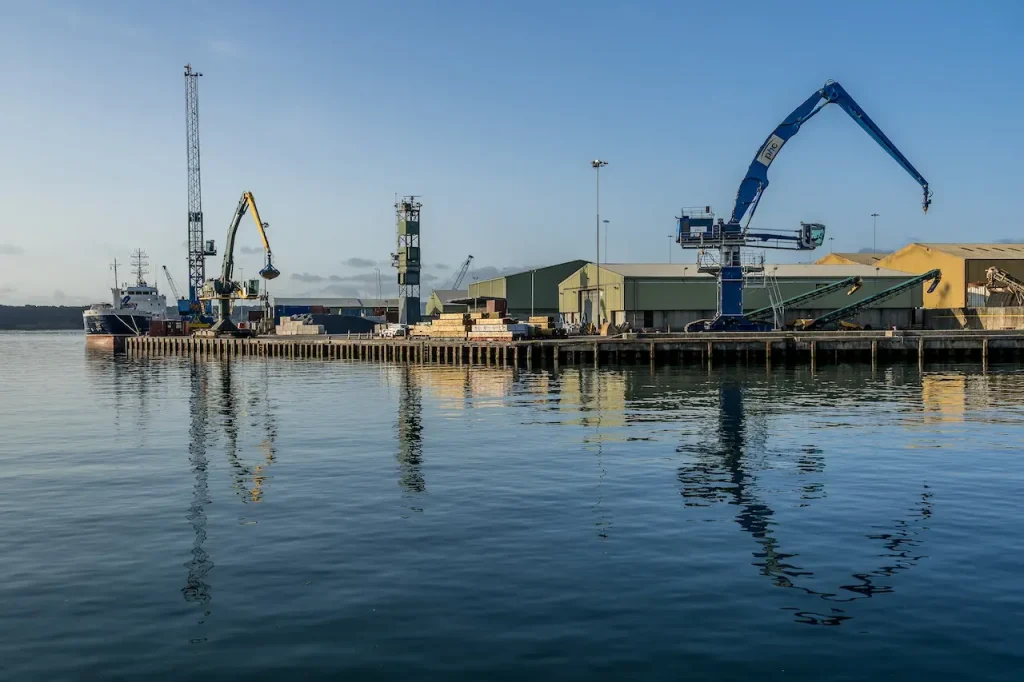How The UK’s Construction Industry Is Going Greener
How The UK's Construction Industry Is Going Greener And Looking To A Brighter Future
Let’s face facts: climate change has become impossible to ignore. In fact, it’s been impossible to ignore for a while now. At long last, the world’s governments and some of the biggest corporations are starting to take more responsibility. Of course, it remains to be seen whether anything will actually come from those big pledges at the latest environmental summit. There have been some worrying signs that the government has lost its patience with peaceful protesters here in the UK. But there are promising signs in some corners that serious action is being taken.
[ez-toc]

Construction has not always been the greenest industry, to put it bluntly. It has often been cheaper and easier to take the opposite route. But the construction industry is playing a critical role in the UK’s drive towards a more environmentally aware and proactive future. From reducing waste to embracing sustainable materials, there are many ways in which the construction industry is going greener.
Green Building Materials
This is one of the areas where there’s a visible change which is massively encouraging. Sustainable building materials are those that have been produced with minimal impact on the environment. This can include materials made from recycled or renewable sources, such as reclaimed wood, bamboo, or cork flooring.
Other sustainable building materials include low-carbon concrete and insulation made from recycled plastic bottles. These materials have a lower carbon footprint than traditional alternatives. It’s worth noting that there is also a responsibility on the part of those commissioning this work, whether it’s private homeowners or major companies, to ensure that these materials are being used.
Reducing Waste
The construction industry generates a significant amount of waste, to put it bluntly. There have been so many stories about waste ending up in landfills. We all know that kicking the can just creates bigger problems down the line. The good news is that a lot of the rubbish and waste that’s created in construction can be recycled or repurposed. The UK is making progress through initiatives such as the Waste and Resources Action Programme (WRAP).
WRAP aims to reduce waste in the construction industry by promoting sustainable practices such as reducing waste at the design stage and recycling materials where possible. The use of modular construction methods is also becoming more popular. It’s easy to see why because it can reduce waste by up to 90%. It’s also up to construction companies and the people responsible for these projects to make sure that their waste is disposed of properly.
Renewable Energy
It can often seem like the push for renewable energy in the UK is an uphill struggle. You’ll read stories about amazing advances in the technology only to see that ministers are complaining that wind farms are a blight on the local scenery. In the meantime, there continues to be a worrying continuing push towards fracking in this country, which has had demonstrable bad outcomes around the world. But there’s a huge fact that those people are ignoring. That is renewable energy sources like solar and wind power have a much smaller carbon footprint than coal or gas do. That’s why pushing for it is so important.
The good news is that a lot of new construction projects are incorporating these greener alternatives into their plans. This can help to reduce the environmental impact of a building’s energy use and reduce reliance on fossil fuels.
Ecology Surveys
Ecology surveys are absolutely essential and, handily enough, are required by law. These surveys assess the impact of a development on local wildlife and their habitats and provide recommendations on how to avoid or mitigate any potential impacts.
Ecology surveys are required for any development that has the potential to impact protected species or their habitats. This can include new builds, extensions, and renovations. By identifying and protecting local wildlife and their habitats, ecology surveys help to maintain a healthy and diverse ecosystem. If you think that your project needs an ecology survey then you’re going to want to find a firm that has plenty of experience and can get you your results quickly. Arbtech has been conducting ecology surveys for over 18 years and can help you with a wide range of different situations.
Green Building Standards
The UK has a number of green building standards that are designed to promote sustainable building practices. One example is the BREEAM (Building Research Establishment Environmental Assessment Method) standard, which assesses a building’s environmental impact across a range of criteria, including energy use, water consumption, and materials selection.
Another example is the Passivhaus standard, which focuses on reducing a building’s energy use through design features such as insulation and airtightness.

Green Transport
The construction industry in the UK is also making progress towards getting greener vehicles involved in their projects. For example, electric and hybrid vehicles are becoming more widely available, and more reliable. It’s a great look for any construction business if they can show that they are doing everything they can to keep the amount of exhaust fumes on their building sites to the absolute minimum. A lot of companies are also promoting sustainable transport options for their employees. That means subsidising bike-to-work schemes and public transport fees. This might not seem like a massive step, but you’d be surprised at the difference that it can make.
Green Roofing
Green roofing is becoming increasingly popular in the UK. If you’re asking, “What is green roofing?”, well, it’s a roof that’s covered in vegetation. This is part of a wider push to reduce the urban heat island effect and improve air quality. They also provide a habitat for local wildlife.
Green roofs can also help to reduce a building’s energy use because they actually provide insulation and cut down the need for air conditioning. They can also cut down on the amount of water that goes spilling around during heavy rainstorms because it’s absorbed by the vegetation.
There is still a long way to go for every industry in the UK, but it’s so encouraging to see that there are clear signs of progress being made in construction.




